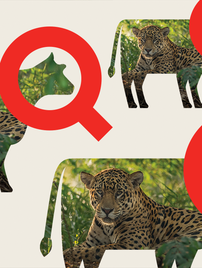Jaguars vs cows: The biodiversity crisis under JBS’s shadow
The jaguar's future looks increasingly uncertain as Big Agribusiness tears down its home in Brazil's tropical forests to make way for cattle ranching

Trending investigations
-

Sunk costs: A mega-airport in the path of climate disaster
Flights from one of the world’s largest airport projects may be grounded within 30 years due to the risk of sinking land and rising sea levels. 27 January 2025
-

Slash and sell
A Canadian asset manager part run by green finance champion Mark Carney cleared thousands of football fields worth of tropical forest in Brazil, our investigation can reveal. 08 November 2022
-

How the militarisation of mining threatens Indigenous defenders in the Philippines
With skyrocketing global demand for critical minerals – vital to the green energy transition – Indigenous groups and biodiversity are at risk in the Philippines. 03 December 2024
Climate crisis in focus
-

The critical minerals scramble: How the race for resources is fuelling conflict and inequality
While Trump zeroes in on embattled Ukraine's critical mineral reserves, conflict and inequality clash with efforts for a just energy transition across the globe
-

How can we hold companies responsible for the damage they cause?
Irresponsible companies are causing environmental destruction and human rights abuses around the world – but there is action we can take to stop them
-

What is climate disinformation?
Climate disinformation is hindering our ability to combat the gravest threat of our time
Defending our planet's frontline
Latest articles

Jaguars vs cows: The biodiversity crisis under JBS’s shadow
The jaguar's future looks increasingly uncertain as Big Agribusiness tears down its home in Brazil's tropical forests to make way for cattle ranching

New investigation suggests EU trader Traxys buys conflict minerals from DRC
Analysis of trade data and testimonies suggest a significant proportion of coltan bought from Rwanda by multibillion-dollar company is connected to the ongoing war in east DRC
The time for change is now
The climate crisis is no longer an event on the horizon. It’s here, it’s now. Learn how you can support fearless investigative campaigning to expose the industries fuelling climate breakdown.


About us
Global Witness is an investigative, campaigning organisation that challenges the power of climate-wrecking companies, and stands with the people fighting back



